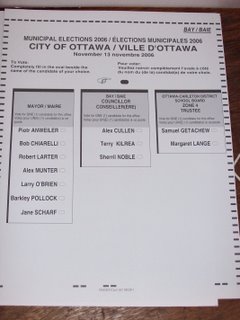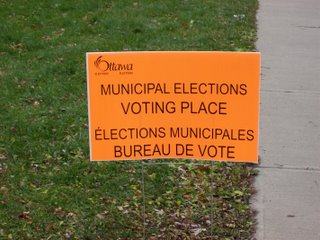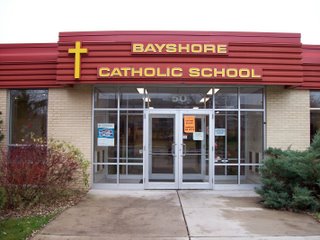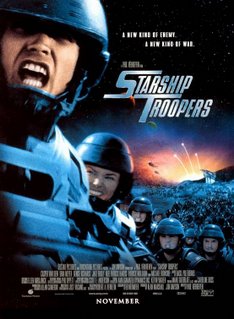 Contemporary society has developed into one in which expectations run high: we expect a great deal from a vast number of things, especially when it comes to things relating to our governments and what they are supposed to do for us, but what about what we are supposed to do - what are the duties, if any, of a citizen? What of the famous words uttered by John F. Kennedy, when he said, “ask not what your country can do for you– ask what you can do for your country.” These words were spoken on January 21, 1961 during his inaugural address, as he became the 35th president of the United States. They are words that still resonate after nearly forty-five years, but are actually listening to what was said?
Contemporary society has developed into one in which expectations run high: we expect a great deal from a vast number of things, especially when it comes to things relating to our governments and what they are supposed to do for us, but what about what we are supposed to do - what are the duties, if any, of a citizen? What of the famous words uttered by John F. Kennedy, when he said, “ask not what your country can do for you– ask what you can do for your country.” These words were spoken on January 21, 1961 during his inaugural address, as he became the 35th president of the United States. They are words that still resonate after nearly forty-five years, but are actually listening to what was said?If we are to believe that the words spoken after what is described as the bloodiest period in American history, the Civil War, by president Abraham Lincoln hold any meaning and have passed down a lesson to the present generations it is also to say that those who died, the dead that Lincoln is invoking in his text, are still being honored by the fact that a lesson learned means there is something gained. At the dedication to the cemetery at Gettysburg Lincoln closed his short comments with the following lines: “we here highly resolve that these dead shall not have died in vain; that this nation, under God, shall have a new birth of freedom; and that government of the people, by the people, for the people shall not perish from the Earth.”
The words have, obviously, made an impression on western society in general, which is why we hear such terms as "civic duty" tossed around. Ultimately, however, we must look at our status as citizens – individually – and understand exactly where we stand in the grand scheme of things.
On the rare occasion that the government deigns us worthy to interact with us, such as having open hearings or some other such event, the people that end up attending are usually the press and a selection of special interest groups who are in attendance to ensure that none of their pet-projects (client's projects) are being risked. How many ordinary people would go to Senate Committee Hearings ... on any issue? I confess that while living in the capital city of Canada and having the government right at my fingertips I have not availed myself of the opportunity to explore the inner machinations of what the “suits” do while the rest of the world earns a living. Part of the reason is simple procrastination; I keep meaning to go, and put it off for another day.
 The one time that the "average Joe" is given an active voice, however, is when an election is called and we suddenly become something that the politicians need; citizens of the nation are called upon by a suddenly sociable group of politicians that are solely interested in where we place the mark on our ballots on Election Day. With ballot in hand, a citizen wields the most powerful tool of democracy: the vote. This is the position I found myself in on Monday, November 13 as I voted in our Municipal Elections.
The one time that the "average Joe" is given an active voice, however, is when an election is called and we suddenly become something that the politicians need; citizens of the nation are called upon by a suddenly sociable group of politicians that are solely interested in where we place the mark on our ballots on Election Day. With ballot in hand, a citizen wields the most powerful tool of democracy: the vote. This is the position I found myself in on Monday, November 13 as I voted in our Municipal Elections.While this election didn't have the same energy attached to as the recent Midterm Elections south of the border, it was a necessary function of democracy, and it resulted in my thinking a great deal about the issue of what it meant to be a citizen.
 When I arrived at my polling station (Bay Ward, Poll 7, in case you care) I was absolutely thrilled to see a rainbow of humanity represented. As I have mentioned in previous posts, I live in a neighborhood that is richly diverse ethnically: well, it is great to know that there doesn't seem to be a racial barrier to voting.
When I arrived at my polling station (Bay Ward, Poll 7, in case you care) I was absolutely thrilled to see a rainbow of humanity represented. As I have mentioned in previous posts, I live in a neighborhood that is richly diverse ethnically: well, it is great to know that there doesn't seem to be a racial barrier to voting.All of these people from all over the world who had one thing in common: they had made Canada their adopted country, and were now participating in the democratic process of their new homeland. It reminded me of the scripture in the New Testament, from one of the letters that Paul wrote in his epistle to the Galatians, “These is neither Jew nor Greek, there is neither bond nor free, there is neither male nor female: for ye are all one in Christ Jesus.” (Gal. 3:28,KJV) The message is beyond simple: we are all the same.
Seeing all those people voting made me think about my own citizenship here in Canada. By virtue of my birth, having been born in Toronto, Ontario, Canada, I am a Canadian citizen, and this can never be taken away from me. I love Canada and being Canadian, and on the occasions that I have traveled, upon returning home that is the overwhelming feeling that I experienced: I was home. I have also been told that, because my parents were both born and raised in the United States and have never gone through the act of officially denouncing their citizenships, if I desire, I can apply for U.S. citizenship.
Save for a rather strong yearning to vote in the 2008 Presidential race, I have no other desire to seek dual citizenship, but this raises a third issue relating to citizenship and my life; the "right of return". By virtue of my background, having Jewish ancestors on both sides of my family for as far back as we know, I know that I can get onto an airplane and go to Israel and become a citizen as soon as I arrive as a result of the "Right of Return".
Why wouldn't I want to do this, you may ask? The answer is simplicity itself: I could never accept citizenship in a nation where my blood brother cannot. The son of my father, whose mother is not the same as mine, is not considered to be a Jew, so he has been told that he does not have the "Right of Return".
How can this be? One brother a Jew, welcomed to return to their “homeland”, yet the other is, for all intents and purposes, a pariah, even though our father is the same man – a man who is the father of all Jews, the patriarch of all Israel.
If being a citizen means the betrayal of my brother, my own blood, it is a price that I cannot bear to pay, and will not pay.
 Having considered this issue I was reminded by the way citizenship was dealt with in a novel by the late sci-fi author Robert A. Heinlein. The novel, which was published in 1959, was made into a movie in 1997 which was probably seen by more people than had read the book (I confess, I have not read the book – yet – though I was, at least, aware that Heinlein had written it when the movie came out). In the movie “Starship Troopers” we learn that it is through “voluntary Federal Service” that someone earns their full rights as a citizen, those rights including the ability to vote and hold public office. Of course, “voluntary Federal Service” involved going to war against vicious, man-eating bugs that were intent on the eradication of every human being in the universe, but that seemed to be a minor point to the hundreds of thousands who were volunteering to be the next ones to become members of the Mobile Infantry.
Having considered this issue I was reminded by the way citizenship was dealt with in a novel by the late sci-fi author Robert A. Heinlein. The novel, which was published in 1959, was made into a movie in 1997 which was probably seen by more people than had read the book (I confess, I have not read the book – yet – though I was, at least, aware that Heinlein had written it when the movie came out). In the movie “Starship Troopers” we learn that it is through “voluntary Federal Service” that someone earns their full rights as a citizen, those rights including the ability to vote and hold public office. Of course, “voluntary Federal Service” involved going to war against vicious, man-eating bugs that were intent on the eradication of every human being in the universe, but that seemed to be a minor point to the hundreds of thousands who were volunteering to be the next ones to become members of the Mobile Infantry. Is this the price of citizenship? What brought Heinlein’s concept to mind was what would happen if I did decide to seek Israeli citizenship, and the moments afterward. While I can’t actually imagine that anyone with any semblance of sense would hand me any sort of weapon that was loaded, the idea that citizenship in Israel comes with automatic membership in the IDF or the reserves (depending on physical ability and age, of course) only adds to the reasons to reject the offer.
Is this the price of citizenship? What brought Heinlein’s concept to mind was what would happen if I did decide to seek Israeli citizenship, and the moments afterward. While I can’t actually imagine that anyone with any semblance of sense would hand me any sort of weapon that was loaded, the idea that citizenship in Israel comes with automatic membership in the IDF or the reserves (depending on physical ability and age, of course) only adds to the reasons to reject the offer.Israel has, without trying, turned Robert A. Heinlein into something of a prophet. Without meaning to, Israel has managed to become the “federation” battling a war that seems to have no end while constantly saying, “we want peace”, even as they perfect new ways to kill their enemy.
You cannot have peace with your neighbour when you are excluding your own blood from returning to the homes from which you have driven them. We, as citizens of whatever country we happen to be in, are blessed by the fact that there are laws in place to protect our rights. What of the rights of all people, oh Israel? What of my brother? When will he and his family be allowed to return to the land of his father; the land of our forefathers?
To deny the children of Abraham their inheritance is nothing short of an abomination before the Lord, and you, oh Israel, shall pay the price, for you have crossed a line that cannot be uncrossed. You have murdered the innocent in the name of national security; in the name of self-defense you have wiped out entire families and then had the audacity to say, “it was an accident”. Allowing Zionist fascists to have any control of a government is an accident; slaughtering innocent civilians is murder.
By birth I am a Canadian and a Jew. Being a Jew is something that transcends the issue of race; it is a cultural identity that can never be removed from who I am even if I have never attended a service in a Synagogue (save for one I once led). By choice I am a Christian, and as we all are, I am a human. Under the surface there is no difference, neither between Jews nor Greeks, nor any other races. What we are distinguished by, as citizens, is our actions. When we have an opportunity to exercise our right to vote – a right that has been paid for with the blood of some of our finest, and youngest, citizens through the wars that sought to strip us of those rights – when we exercise those rights we are committing an act that celebrates all that is good in the democratic system.
Whether the candidate that I voted for wins or not is really not the important issue, the issue is that the true freedom here, in a country where it doesn’t matter what your background is in order for you to become a citizen, is the exercising of the right to vote. To exercise your vote is to make your voice be heard and effect change, without the need for violence and any innocent lives being eradicated in the process.
When the Zionist fascists in Israel wake up to the fact that the people they are denying the “right of return” to are the blood of their blood, perhaps they will have a change of heart … of course, that would be contingent upon their having hearts in the first place, and that’s another issue for another time. Until them, I remain as ever, proudly Canadian.
Tags:
4 comments:
Really good post.
Since I'm of the faith too, maybe I'll join the IDF too.
Atleast in Canada, you have the NDP. That is a party, based on the working class. The Democrats are a bourgeoise party, with no place for an authentic radical.
Your Blogs are inspiring. The activism blogs and especially the music blogs. I ran across your blog spot reading desertpeace's blogs "my daily ritual". he has inspired me for many years now. especially my music. I have to admit my life partner and myself envy you for being related the stronger person to grace this planet. Thanks for the inspirational reading and best wishes to you.
Thanks, DP, I figured you would both appreciate that - perhaps it will all change someday ... God willing (or, at this point, I'm wondering if it is even something HaShem pays attention to - how many chances at peace do you get before you are "on your own"?).
Nice to see you, Renegade Eye (wink) - I don't think the IDF really needs your help at this time ... do you? ... unless you want to throw a cog into the works :-)
Thank you for visiting my page, Jade, and for writing such a wonderful tribute to my father, DesertPeace. We have had our disagreements in the past (what father/son haven’t), but at least when it comes to the sphere of political and human rights issues there aren’t any discordant points.
I am honoured that you find my writings inspiring and hope that I can continue to live up to such high praise. This is the type of compliment, an experience, a writer hopes to be able to create through their words regularly, so to be told that it has been done is akin to having reached a special place in the development of my abilities as a writer, and it inspires me to continue. Again, thank you.
Thank you Peter, for this beautiful post. Thanks for sharing with us these personal information.
Post a Comment